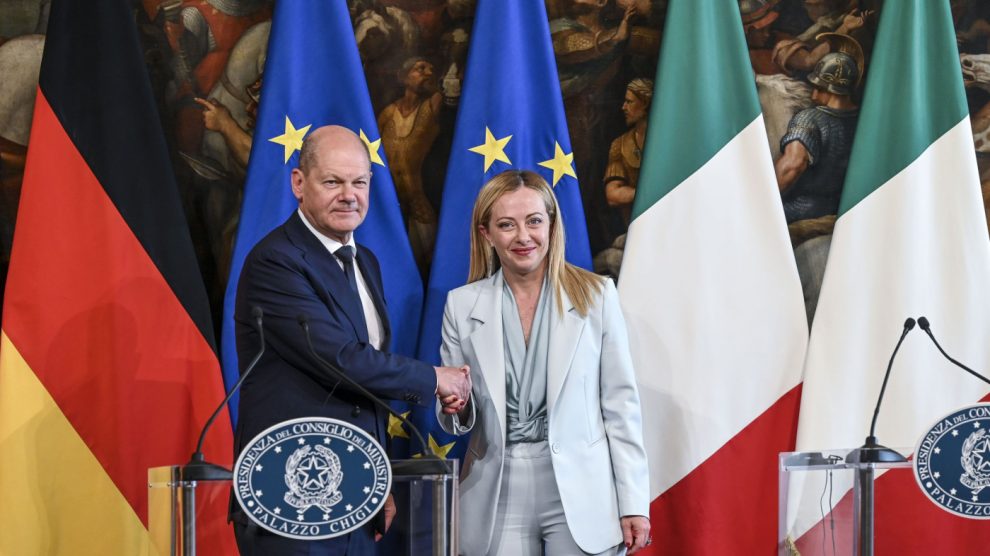The so-called Zeitenwende is proving to be all but easy to live up to for Germany, while Italy still has to prove it perceives any urgency when it comes to a change of pace in defence spending. In this situation, cooperation between the two states can help to alleviate the burden imposed by the radical changes both countries will need to implement in their defence policies. Both countries’ defence budgets are currently being increased, but while this was necessary after a long period of underfunding of the respective armed forces, it also comes with some risks. The primary danger is that both Berlin and Rome will use the concept of European strategic autonomy to appease national industrial champions rather than actually implementing plans to strengthen EU defence initiatives. Despite some positive signals, it is uncertain how much of Germany’s 100 billion euro special fund will be invested in multinational strategic armament projects. Similar risks are present in Italy, which badly needs to replenish its stocks after the latest shipments to Ukraine.
The authentic European commitment of the two nations should inevitably result in joint efforts, beginning with technological and industrial advancement. Italy and Germany have declared their willingness to increase their defence expenditures to 2 per cent of GDP, as agreed upon at the 2014 NATO summit in Wales. This old threshold, which after 24 February 2022 has become a starting point rather than a ceiling for many within the Alliance, will not necessarily enhance the EU’s defence profile. In contrast, national increases in the defence expenditures that are not coordinated may paradoxically be detrimental to the strategic autonomy of the EU. As a result of Russia’s invasion of Ukraine, the imperative need of many EU countries to purchase or upgrade weapons has a negative impact on the European industrial base. In the future, countries with a proclivity to cooperate, such as Germany and Italy, should maximise the potential of strategic, industrial and cultural synergies in the defence sector. This cooperation should begin as a bilateral effort within the framework of the forthcoming Italian-German Action Plan and, whenever feasible, translate into bilateral initiatives in the defence industry. Initiating pragmatic projects and generating industrial and political realities is the most effective method to advance European integration. This is something that can be accomplished more easily by beginning with a bilateral perspective while remaining open to the eventual participation of other EU nations.
The paper is available at this link.





